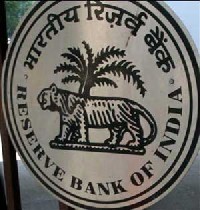An order passed by Chief Information Commissioner Satyananda Mishra makes it mandatory for the Reserve Bank of India (RBI) to disclose pre-board meeting agenda notes and minutes. RBI has been told to draft a "disclosure policy" by February 2011 to bring about greater transparency in the bank's functioning. The Commission said such a move "will also set the trend for other banks to follow". The decision came on an application filed by one Kishan Lal Mittal, a resident of Mumbai, who had asked from RBI the copies of the minutes of the meetings of governing board, board of directors, committee of directors of the central bank from April 2007 and information regarding the complaint handling procedures followed by it against banking/non-banking companies.
The decision came on an application filed by one Kishan Lal Mittal, a resident of Mumbai, who had asked from RBI the copies of the minutes of the meetings of governing board, board of directors, committee of directors of the central bank from April 2007 and information regarding the complaint handling procedures followed by it against banking/non-banking companies.
RBI's Public Information Officer said the information was "voluminous" and would take a long time to furnish, which would result in wasting public money.
What is more, RBI argued that providing the information "would amount to disclosure of information that could prejudicially affect the economic interests of India since RBI and its committees often deliberated on economically and financially strategic matters".
"We direct the CPIO to bring it to the notice of the competent authority in RBI to prepare its disclosure policy in respect of not only the minutes of the board and other meetings, but also in respect of all other information held by it in tune with the provisions of the Right to Information (RTI) Act and post this policy on its website," Mishra said, while asking RBI to comply with the order by February 2011.
"Once RBI makes it clear which information it would not disclose under the exemption provisions of the RTI Act, it would be clear to everyone what all information can be expected to be disclosed," he said.
"Such clear enunciation of the negative list of items/classes of information in conformity with the exemption provisions of the RTI Act would remove all doubts in the minds of the officers of the bank about what they must disclose and which they must not.
This would minimise the use of the appellate mechanism and bring in much greater transparency in the functioning of the apex bank. It will also set a trend for other banks to follow," Mishra added.
RBI had argued initially that it be placed on the list of authorities exempt from the RTI Act. The government turned down the request.









 © 2025
© 2025